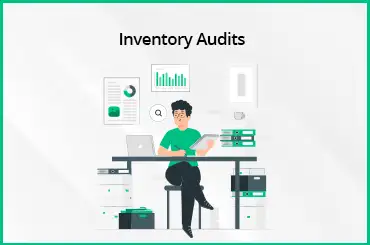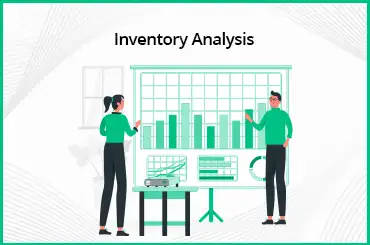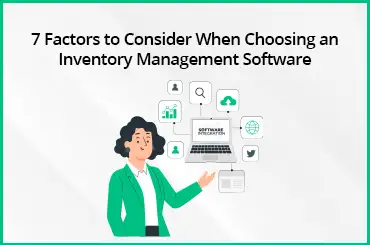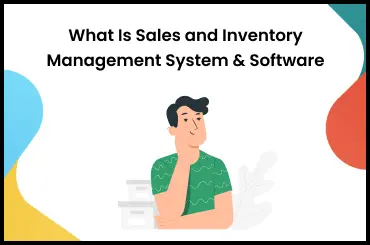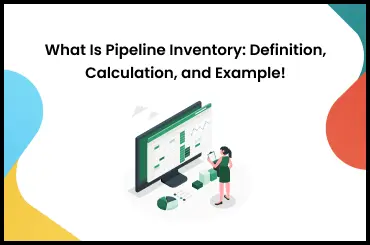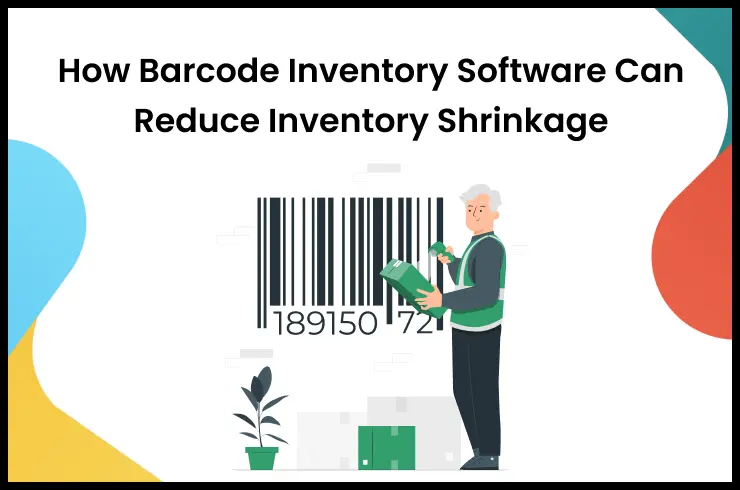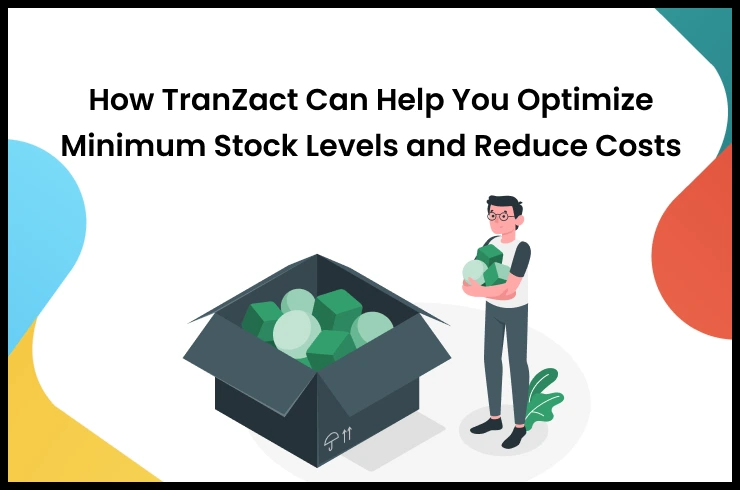Here's a simple answer to what is logistics. It is the process of planning, implementing, and controlling the movement and storage of goods, services, and information from the point of origin to the point of consumption.
It defines the effectiveness of a business. Poor logistics impacts the foundation and the reachability of the business, causing untimely deliveries, and failure to meet customers' needs. Logistics is extensively utilized in the business or manufacturing sectors to manage inbound logistics and outbound logistics and streamline the production process.
Here is an in-depth guide on what is logistics, the aspects of Logistics, its functions, importance, and the types of Logistics. Stay tuned and learn more on this topic.
What Is Logistics?
Logistics refers to the processes of handling and coordinating resources, including the capital, raw material, equipment, inventory, or human resources, involved in the production process from start to finish. This includes the location of the manufacturing unit or warehouse to the desired location, or until the final output reaches the consumers.
Logistics deals with delivering goods or finalized products to get resources and inputs to the right place, to the right customer, and at the right time. Logistic companies use certified transportation management system (TMS) software to meet the logistics and transportation needs of the companies.
Example - In natural gas, logistics teams manage pipelines, storage, warehouse logistics, trucks, and other departments like distribution centers and handle the transportation of oil seamlessly throughout the supply chain and logistics framework.
Functions of Logistics
The key to understanding what is logistics is to maintain the quality of the products, keep their quality consistent, and ensure that the customers have trust in the company.
The functions of logistics management are-
Processing Orders
Order processing is critical for businesses and customers. It includes checking for contractual, payment, and delivery terms and product availability changes.
Transportation
Transportation is another vital component of logistics and takes up 70% of the total costs. The price is an important factor in selecting the methods of transport, and it is preferred that goods are sent via the fastest route.
Inventory Management
It includes handling and control of components like inventory funding, warehousing, damages, and repairs in the supply chain. This helps to ensure exceptional customer service and avoid reduced market share and high costs.
Warehousing
Warehousing is a critical decision, and with the right and advanced warehouse facilities, labor costs are reduced, and inventory control is improved.
Why Logistics Is Important?
Logistics management involves transport, warehouse, materials handling, order fulfillment, inventory, and demand planning. It forms the foundation for a successful business management and resource management system.
Having understood what is logistics, let's understand the importance of logistics management -
- On-time delivery of perfectly secured items and goods is important to the supply chain. Same-day home or retail delivery is getting common for general and customized products.
- Logistics enhance the supply chain visibility and integrate various processes and systems together.
- Manufacturers, retailers, distributors, and suppliers utilize logistics processes to improve production processes and cover a wider variety of goods for easy and effective delivery.
- Synchronization of resources to ensure timely supply and application of raw materials can boost the profitability of companies.
- Effective purchase, storage, and transportation of raw materials foster better input utilization and scalability for businesses.
- Customer satisfaction can suffer if products are not made or supplied on time, affecting profitability.
Logistics vs Supply Chain Management
Logistics and supply chain management may seem similar. However, they differ from one another in various ways. Here is the key difference between logistics and supply chain management -
| Conditions | Logistics | Supply Chain Management |
|---|---|---|
| Meaning | What is logistics - It is the process to integrate the transportation and maintenance of inputs and outputs in a company. | What is supply chain management - It refers to the cooperation and handling of supply chain activities like labor planning, materials, inventory planning, and labor. goods manufacturing and handling. |
| Goal | It focuses on customers gratification. | It works towards competitive advantages. |
| Prime objective | It focuses on cost-effective, faster, and more effective transport of goods to the end users. | It tackles the raw materials and final goods from supplier to manufacturer to retailers, wholesalers, and end consumers. |
| Relation between the two | It is a part of supply chain management. | It is the newer version of the logistics system. |
| Number of organizations involved | Only one at a time. | Multiple organizations at a time. |
Types of Logistics
The logistics sector was revolutionized in the 1960s by IBM's automated inventory management and forecasting system, and it is now affected by artificial intelligence and machine learning to provide more accurate forecasting and better order management for logistics. The modern use of advanced technologies and the changes in the outlook of companies and consumers transform shipping and logistics management.
Here are the popular types of logistics management systems used in various industries -
Logistics in E-Commerce
Logistics has become one of the fastest-growing industries as a result of the rise of e-commerce and online ordering. Due to its global network of distribution, sortation, and fulfillment facilities, e-commerce websites are emerging among the most well-known logistics leaders.
Features like same-day and next-day delivery models are based on a sophisticated logistics architecture, with products transported to fulfillment centers before being transferred to sortation centers and loaded onto various transport modes.
Logistics in Freight Shipping
Logistics is a complicated web of moving pieces that collaborate to improve efficiency and lower costs throughout the supply chain. Individual players can handle specific components of the process, whereas third-party providers can handle the complete supply chain. Freight firms are concerned with physical transportation, whereas freight forwarders are concerned with optimizing transportation options.
Third-Party Logistics
Third-party logistics providers, or 3PLs, have transformed logistics by enabling firms to receive better prices, grow into new markets, and improve customer experience by carrying, storing, and packaging goods. It expands the reachability and scalability of businesses allowing businesses to cater to vast consumer demands with ease.
Recovery Logistics
Forward logistics is the movement of things from production to consumption, whereas recovery logistics or reverse logistics is the movement of products, containers, and packaging that have served their purpose. Similar to recycling logistics, emphasis is put on this flow in recycling-oriented cultures.
Production Logistics
The flow of goods that involves the administration of procurement components and supplies, shipping, manufacturing, storage, and shipping to warehousing is known as production logistics. By connecting procurement and sales logistics, supply management, storage dispatch management, and shipping administration may be optimized.
Sales Logistics
The term logistics applies to sales logistics, with direct delivery becoming more prevalent as a result of the rise of the Internet and online shopping. Improved effectiveness in shipping and delivery, and reduced inventory, are required for delivering items to the correct individuals in the correct amounts at the right moment, resulting in higher customer satisfaction.
Integrated Logistics Solutions With Tranzact
With modern advancements and changes in market trends, businesses must incorporate updated logistics management mechanisms. Businesses must be aware of what is logistics, and use logistics management systems to cater to diverse business operations like materials handling, order fulfillment, and inventory management.
TranZact integrates with expert logistics solutions such as AfterShip to provide logistics and tracking facilities to its users. This simplifies shipping concerns for SMEs and helps them focus on important business activities!
FAQs on Logistics
1. What is fulfillment in logistics?
Transporting consumer orders, storing products at an e-commerce warehouse, packing boxes, and delivering orders on time are all part of fulfillment logistics.







